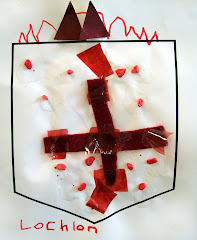Confidence is important for developing and maintaining good mental
health as confident children are more able to build positive relationships, do
better at school and become happier, successful adults.
Confident children are motivated learners
Children who are confident are motivated to engage in more
experiences; they expect to have successful and positive experiences because
they have done so in the past.
Children who lack confidence in their abilities can sometimes
try to avoid having a go at some things and this can stop them from
developing the skills they need to tackle tasks confidently.
Three ways to help children build their
confidence
Kids develop confidence and a sense of independence when they see
how others react to their abilities
Here are some ways parents and carers can help build children’s
confidence:
1. Encouraging them to participate and have a go!
Encouraging children to have a go and valuing individual
improvement is one good way to support children’s confidence.
Participation is less about winning and losing, and more about
valuing individual effort, persistence and improvement.
It’s important to celebrate with children the experience of
participating in something for the enjoyment it creates, rather than for a
reward.
2. Supporting their self-esteem
Confidence and self-esteem go hand in hand. It's important to help children feel positive and accept themselves the way they are, and see that they don’t have to be as good as everyone else.
Confidence and self-esteem go hand in hand. It's important to help children feel positive and accept themselves the way they are, and see that they don’t have to be as good as everyone else.
Confidence improves through building on small successes, so make
sure you celebrate your child’s improvements and successes.
When a child says he or she can’t do something that you know
he or she can do, try not to get caught up in the attempts to avoid doing
the task.
Instead, try and motivate the child by making the task fun
and interesting. You might set a challenge to help make learning
fun, for example: “I wonder how many spelling words you can get
through in one minute?”
Reminding children of positive goals can also help them to
keep trying, for instance: “Keep practising a few more times. Just
think how proud you will feel when you are ready to perform in a couple of
weeks.”
3. Dealing positively with disappointment
Children need to learn ways to deal with disappointment positively, and to feel good about their efforts - win or lose.
Children need to learn ways to deal with disappointment positively, and to feel good about their efforts - win or lose.
When children are disappointed, it’s easy for them to get into an
“I can’t” or “I’m no good” mindset, which can chip away at confidence.
Parents and carers can help children focus on their
own efforts and on achieving personal goals as the best way to
measure success.
Here’s some good tips for helping children deal positively with
disappointment:
- Responding
sympathetically and with encouragement (eg. “that was disappointing,
but at least you had a go.”).
- Helping
children focus on what they can change to make things better, rather
than thinking that the situation is unchangeable or that there is
something wrong with them (eg. “What can you try that might make
that work better next time?”)
- Challenging
‘I can’t’ thinking by showing and saying you believe in them and
reminding them of what they have achieved.
Emma McKenzie
Teacher - Edgerley Room
Wellbeing Facilitator
